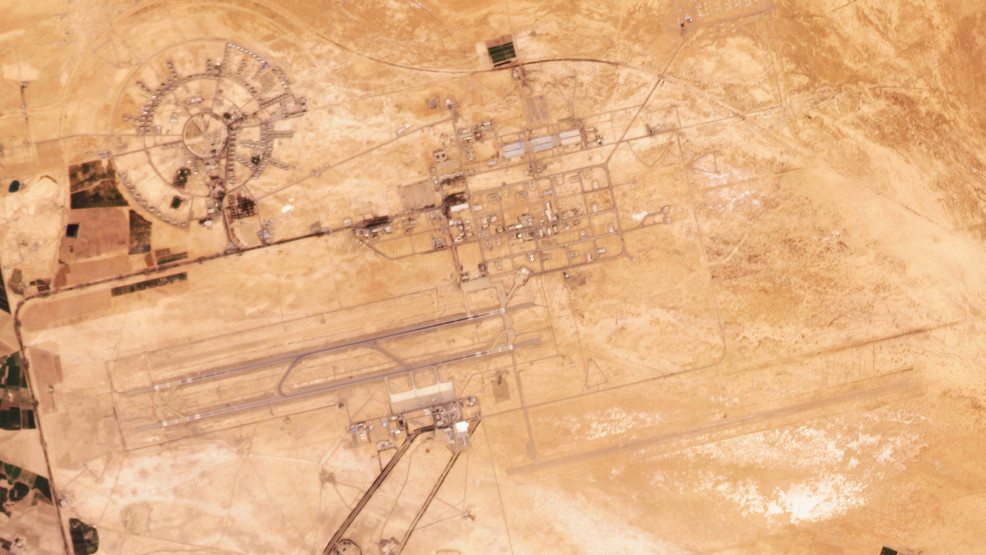WASHINGTON (TNND) — Israel is considering carrying out a military strike against Iran’s nuclear facilities in a move that could upend sensitive discussions between the Trump administration and Tehran to get a new nuclear deal back on the table to prevent the Islamic Republic from developing a nuclear weapon.
The apparent rift represents a conflict between Washington and Israel on what the best approach is to get Iran to the negotiating table and bring an end to its nuclear enrichment program that represents a significant security risk to the region that has been in a state of war for more than a year.
President Donald Trump said that he had pushed back against any actions from Israel that could hurt the negotiations.
“I told him this would be inappropriate to do right now because we’re very close to a solution,” Trump told reporters on Wednesday. “Now, that could change at any moment. It could change with a phone call. But right now, I think they want to make a deal. And, if we can make a deal, (it would) save a lot of lives.”
The clash reflects a disagreement in what would be the best approach to ensuring Iran does not develop nuclear weapons and how to capitalize on a time of weakness for Tehran after Israeli air strikes destroyed significant parts of its air defense system and significantly damaged the capabilities of Hamas and Hezbollah that have operated as proxy fighting forces for Iran.
Israel views the moment of weakness as a time to strike Iran’s nuclear enrichment facilities, many of which are hidden deep underground and spread through mountains and regions across the country. But the White House is hoping to capitalize on it to get Tehran to agree to a new agreement to end its enrichment program with the additional threat of military action hanging over Iran in the talks.
Trump pulled the U.S. out of the Obama-era nuclear deal with Iran during his first term in office and mounted what the administration described as a “maximum pressure” campaign against Iran to give up its enrichment of uranium. In his second term, Trump has taken a softer approach and tried to get Iran to engage in diplomatic discussions to reenter a nuclear deal.
The president has suggested he would consider allowing Tehran to have a civilian nuclear program but has maintained adamant opposition to allowing them to build a nuclear weapon.
Israeli Prime Minister Benjamin Netanyahu has said the only “good deal” between the U.S. and Iran would be one that removed the entirety of Iran’s nuclear facilities and completely removed its ability to continue to enrich uranium and build a nuclear weapon. Israel is reportedly concerned that the administration would accept a deal allowing Iran to keep enrichment facilities.
“They don’t want any path of Iran having a nuclear weapon that changes the entire security dynamics. Just think of the last year and a half in conflict what could have happened,” said Mark Chandler, former director of Defense Intelligence Agency’s Middle East and Africa Center and professor of practice at Coastal Carolina University. “Israel has done this twice, has a valid, credible military threat to go in and attack Iran’s nuclear weapons program, and (Netanyahu is) holding that over the head of the United States, so that the United States doesn’t compromise on its negotiations.”
White House officials have been meeting with their Iranian counterparts regularly over the last several months in hopes of finding an agreement on a new nuclear deal. Most recently, Mideast envoy Steve Witkoff and Michael Anton, the State Department’s policy planning director, represented the U.S. at during talks at the Omani Embassy in Rome last weekend.
Trump said over the weekend that he expected an announcement to come on the talks earlier this week, though so such breakthrough had been revealed as of Thursday.
But Iran has been adamant that it will not accept conditions that do not allow for further enrichment, a significant hurdle for any potential deal and to soothe Israel’s concerns about Iran’s nuclear program.
Questions remain as to how the administration can bridge the gap between Iran’s refusal to give up all enrichment capabilities and whether relief from crushing economic sanctions is enough incentive to get Tehran to budge.
“The biggest stumbling block is the total elimination of a path for Iran. I don’t know how you’re going to sweeten that pot to get them to give that up on that because, for some reason, they feel — and if this is very hard for us in the West to understand — that if they give that up, they lose all their leverage completely,” Chandler said.
